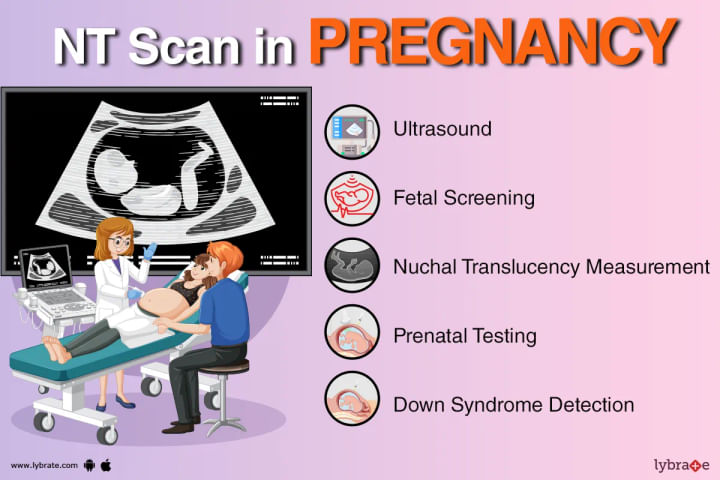What is NT scan in pregnancy
Pregnancy is a time of great excitement and anticipation for expectant mothers and their families. It's also a time when expectant mothers undergo numerous medical tests and procedures to ensure the health and well-being of both mother and baby. One such test is the nuchal translucency (NT) scan, which is typically performed between the 11th and 14th weeks of pregnancy.
Definition of NT scan
Simply put, it's a type of ultrasound that measures the clear (translucent) space at the back of a baby's neck. This space is called the nuchal fold. The measurement of the nuchal fold is known as the nuchal translucency (NT) thickness.
During an NT scan, a trained sonographer uses a special ultrasound machine to create an image of the baby's head, neck, and back. The sonographer will measure the NT thickness and look for any abnormalities or markers that could indicate an increased risk for certain chromosomal abnormalities, such as Down syndrome.
Calculating the risk for chromosomal abnormalities
The NT scan is usually combined with a blood test and other factors, such as the mother's age, to calculate the overall risk of the baby having a chromosomal abnormality. This is known as the combined test. The combined test is considered to be the most accurate screening test available for chromosomal abnormalities during the first trimester of pregnancy.
What does the NT Scan measure?
It's important to note that an NT scan is not a diagnostic test. It's simply a screening test that can help identify a higher risk for certain conditions. If the combined test indicates an increased risk, further diagnostic testing, such as an amniocentesis or chorionic villus sampling (CVS), may be recommended.
Procedure details
The NT scan is generally considered to be safe and non-invasive. It's performed on an outpatient basis and usually takes about 30 minutes to complete. The expectant mother will be asked to lie on an exam table, and a small amount of gel will be applied to her abdomen. The sonographer will then use a transducer (a handheld device) to transmit sound waves and create images of the baby on a screen.
What can expectant mothers expect during the NT Scan?
It's important for expectant mothers to understand that the NT scan is optional. It's up to the expectant mother and her healthcare provider to decide whether or not to have the test. Some women choose to have the NT scan to get a better understanding of their baby's health and development, while others may opt not to have the test based on their personal beliefs or concerns.
Regardless of whether or not an NT scan is performed, all expectant mothers should continue to receive regular prenatal care to ensure the health and well-being of both themselves and their babies. This includes regular check-ups, blood tests, and other screenings as recommended by their healthcare provider.
Conclusion
The NT scan is a non-invasive, optional screening test that can help identify a higher risk for certain chromosomal abnormalities during the first trimester of pregnancy. While it's not a diagnostic test, it can provide expectant mothers with valuable information about their baby's health and development. As with any medical procedure, it's important for expectant mothers to discuss the benefits and potential risks with their healthcare provider before making a decision.



+1.svg)
